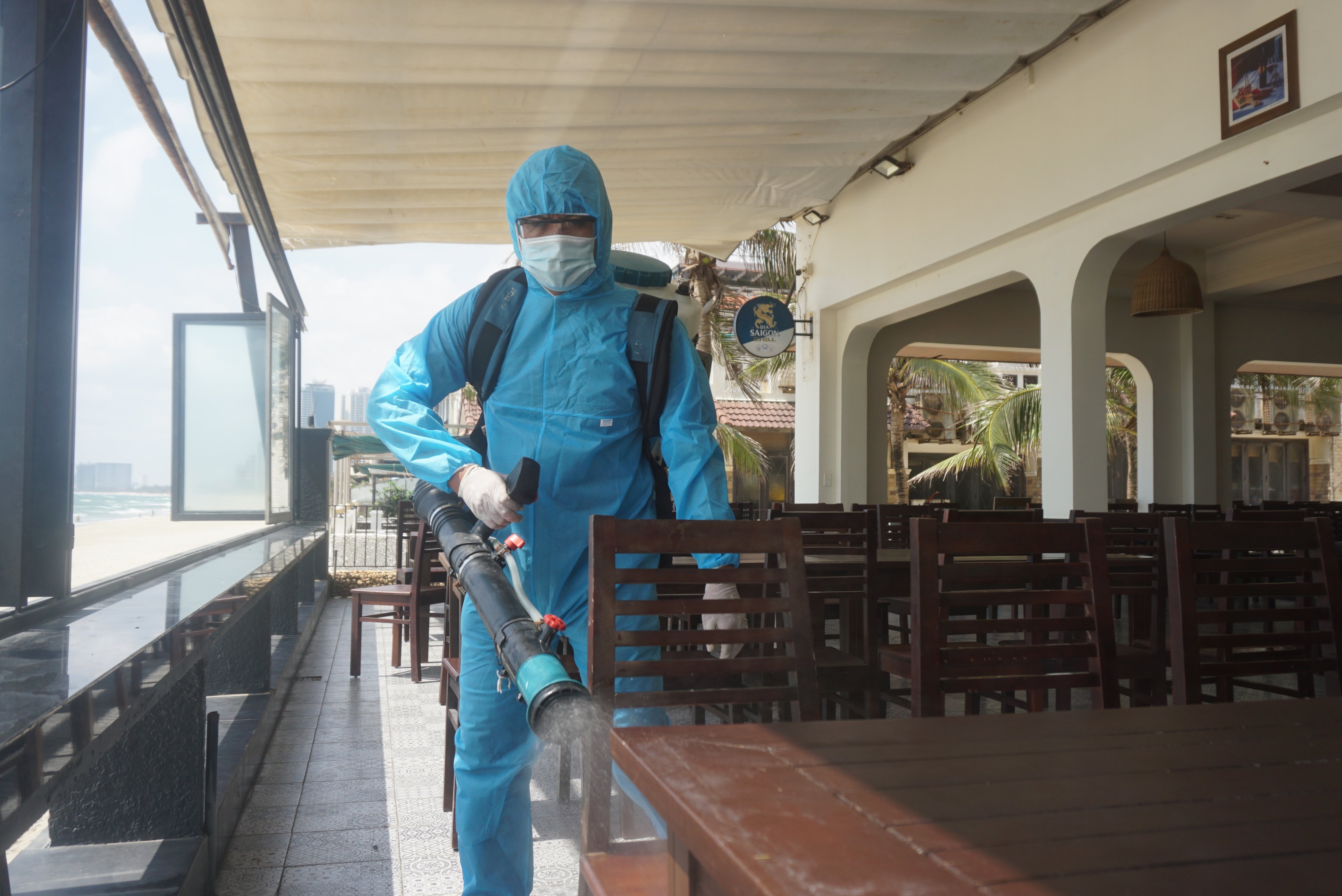Recommended disease prevention in rainy season
Increased rainfall and flooding in many places are favourable conditions for bacteria, viruses and vectors to develop and cause such common diseases as diarrhea, pink eyes, skin diseases and dengue fever. Therefore, Da Nang’s healthcare sector recommends that local residents actively coordinate with localities and health agencies to implement necessary preventive measures.
 |
| A medical worker spraying chemicals to kill adult mosquitoes in order to combat dengue infections in Son Tra District. Photo: PHAN CHUNG |
Hoa Phong Commune is one of the worst flooding-affected areas in Hoa Vang District. Therefore, the potential risk of infectious disease outbreaks is high although the consequences caused by recent flooding have been basically overcome so far, according to Dr. Nguyen Triem, Head of the Hoa Phong Commune-based Medical Station.
In recent years, local residents have returned to the habit of using water from dug wells. Hundreds of dug wells in the commune are infected with bacteria as a result of the recent flooding, potentially causing digestive, eye, and skin diseases, added Dr. Phong.
The doctor said one of the first tasks that Hoa Phong Commune-based Medical Station deploys as soon as the water recedes is to treat the water sources with Chloramin B, and to instruct locals to clean their houses and flood-soaked living items.
According to the latest statistics, in the recent flooding, 339 out of the 650 residential groups in Hoa Vang District involved in 12,400 households, 2,189 dug wells and 36 public places, were flooded and need to be handled.
“The district-level healthcare sector has coordinated with the all-level authorities to spray Chloramine B disinfectant chemical in public areas, as well as instruct locals to use Aquatabs water purification tablets to neutralise viruses and bacteria in dug wells” noted Doctor Nguyen Dai Vinh, Director of the Hoa Vang District Health Centre.
Similarly, functional bodies in Lien Chieu District have focused on using Chloramine B to disinfect flood-hit areas, and treating water sources if necessary, in order to ensure a safe school environment for local children, according to Dr. Nguyen Van Khanh, Head of the Disease Control Department of the Lien Chieu District-based Medical Centre.
As shared by Dr. Nguyen Hoa, Deputy Director of the city's Centre for Disease Control, treating the environment after floods is essential to limit the spread of disease-causing viruses. Therefore, he stressed the need for local healthcare force to guide residents to implement measures for ensuring environmental sanitation, and preventing and controlling epidemics after storms and flooding in households and their surround areas. Special attention was paid to collecting and treating waste, and ensuring sanitation of drilled and dug wells, self-flowing water sources, and underground water tanks, killing mosquito larvae, keeping personal hygiene, and washing their hands with soap.
Till date, the unit has allocated 34,000 Aquatabs tablets and 280kilos of Chloramine B disinfectant chemical in service of water and environmental treatment, and disease prevention and control in the city.
In order to prevent and control infectious diseases after flooding, the General Department of Preventive Medicine under the Ministry of Health has sent an official dispatch to provinces, cities, and local health departments to actively monitor, prevent and control common diseases. Prominent among them are diarrhea caused by E.Coli bacteria, cholera, dysentery, typhoid, hepatitis A, flu, sore throats, respiratory infections, some eye and skin-related diseases, and mosquito-borne dengue fever.
For effective disease prevention and control, in addition to implementing appropriate nutrition, eating cooked food and drinking boiling water, people are highly recommended to improve their personal hygiene, and clean up their living environment according to the instructions.
While it's good to be cautious, health specialists said people should always follow doctors' instructions and not use non-prescription drugs.
Reporting by PHAN CHUNG - Translating by M.DUNG